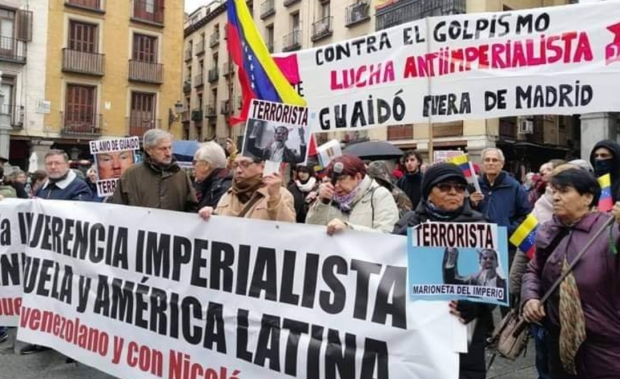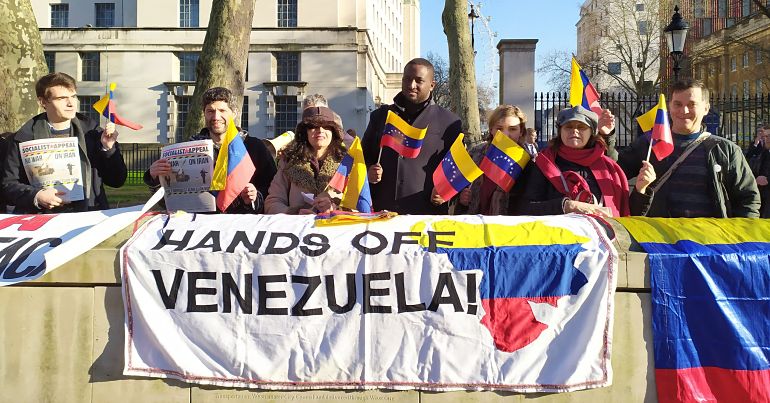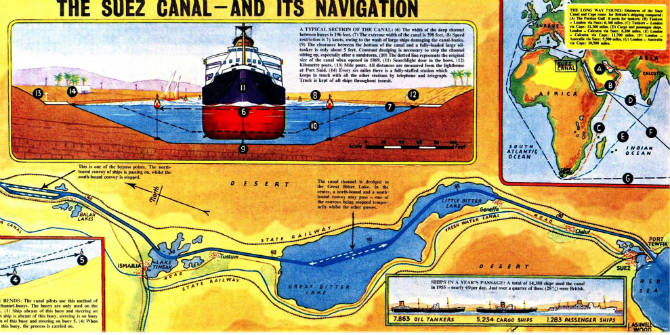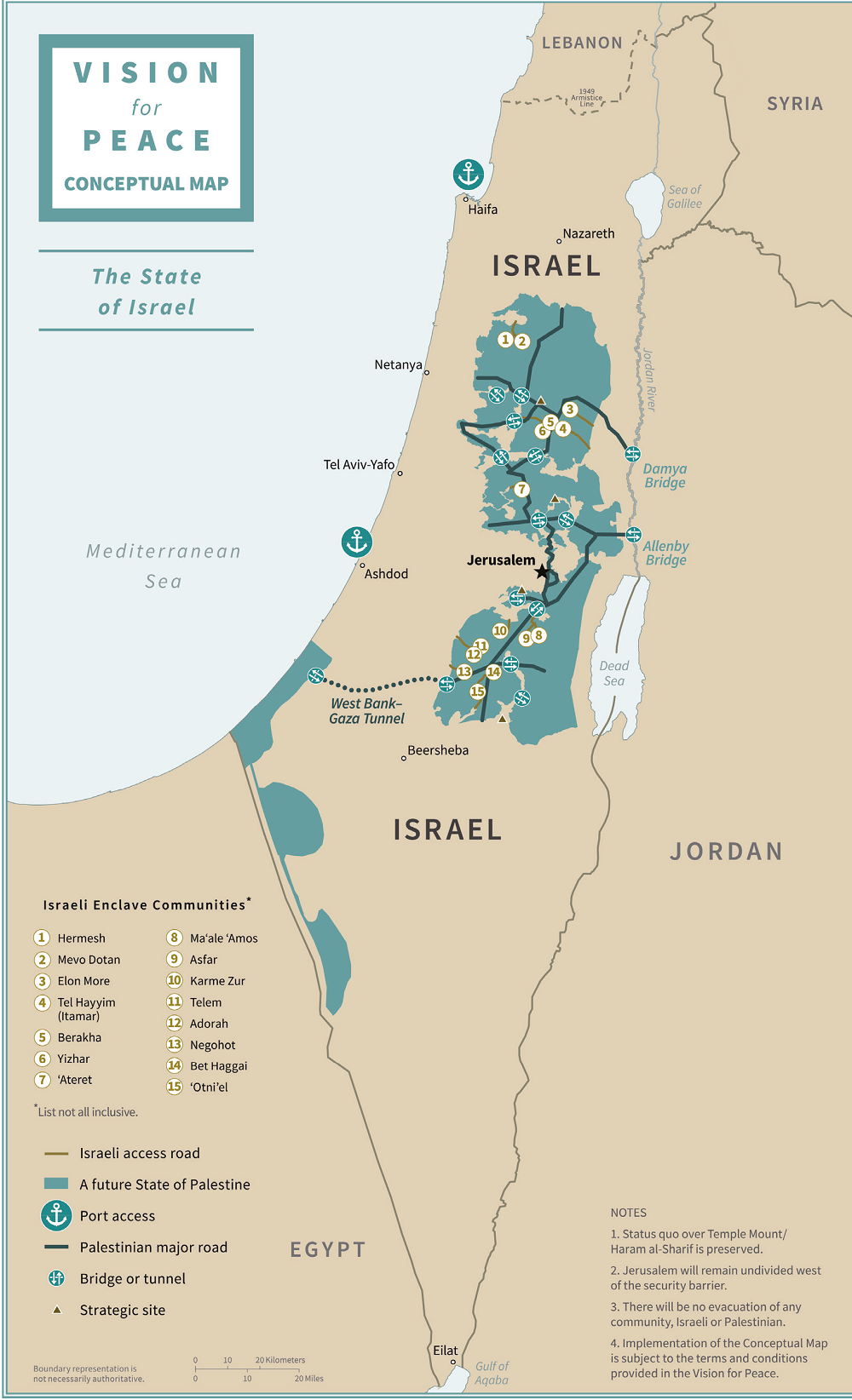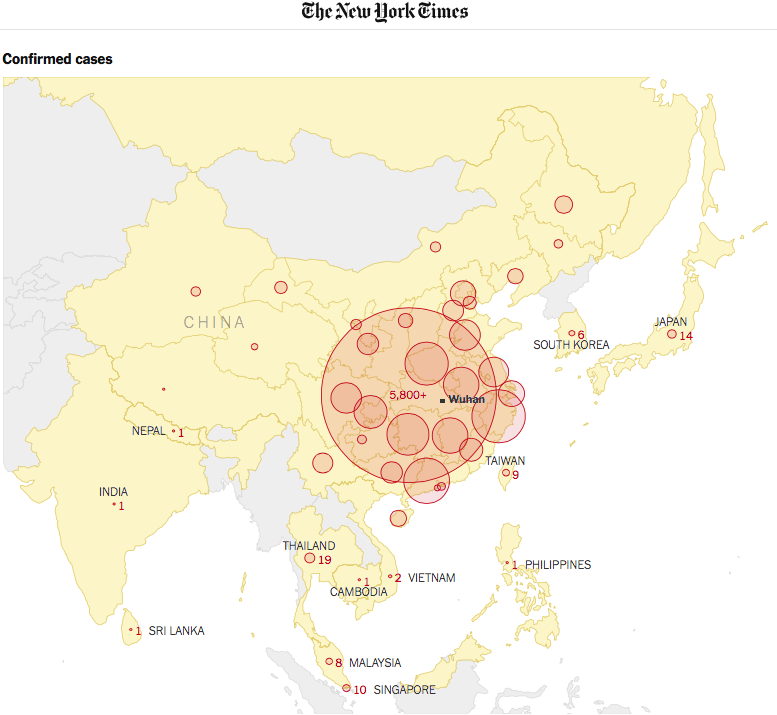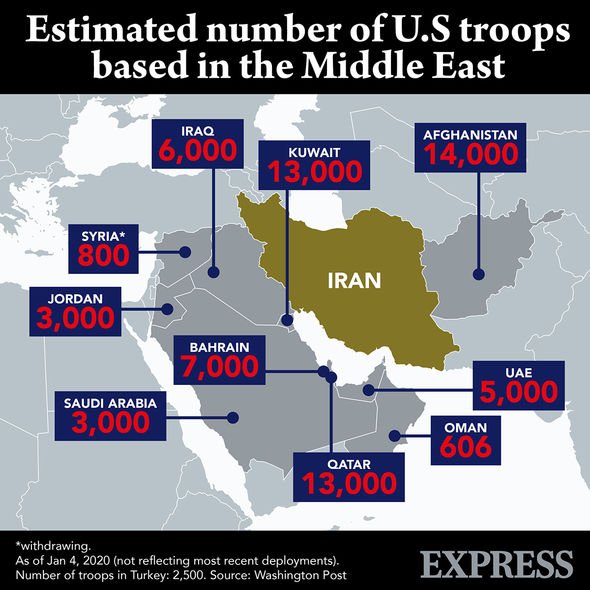Author’s Note
This is an updated and revised version of the full cover-story that appeared in the important publication, garrison: The Journal of History and Deep Politics, Issue 003. Issue 004 is due out this week and I urge readers to purchase it. You will read articles there that you will find no place else, brilliant, eye-opening analyses of issues that the MSM will never touch.
***
“It never happened. Nothing ever happened. Even while it was happening it wasn’t happening. It didn’t matter. It was of no interest. The crimes of the United States have been systematic, constant, vicious, remorseless, but very few people have actually talked about them. You have to hand it to America. It has exercised a quite clinical manipulation of power worldwide while masquerading as a force for universal good. It’s a brilliant, even witty, highly successful act of hypnosis.” – Harold Pinter’s Nobel Prize Acceptance Speech, 2005
While truth-tellers Julian Assange and Chelsea Manning sit inside jail cells and Edward Snowden lives in exile in Russia, the American people hole up in an illusionary dwelling constructed to reduce them to children afraid of the truth. Or is it the dark? This is not new; it has been so for a very long time, but it has become a more sophisticated haunted doll’s house, an electronic one with many bells and whistles and images that move faster than the eye can see. We now inhabit a digital technological nightmare controlled by government and corporate forces intent on dominating every aspect of people’s lives. This is true despite the valiant efforts of dissidents to use the technology for human liberation. The old wooden doll houses, where you needed small fingers to rearrange the furniture, now only need thumbs that can click you into your cell’s fantasy world. So many dwell there in the fabricated reality otherwise known as propaganda. The result is mass hallucination.
In a 1969 interview, Jim Garrison, the District Attorney of New Orleans and the only person to ever bring to trial a case involving the assassination of President John F. Kennedy, said that as a result of the CIA’s murderous coup d’état on behalf of the military-industrial-financial-media-intelligence complex that rules the country to this day, the American people have been subjected to a fabricated reality that has rendered them a nation of passive Eichmanns, who sit in their living rooms, popping pills and watching television as their country’s military machine mows down people by the millions and the announcers tell them all the things they should be afraid of, such as bacteria on cutting boards and Russian spies infiltrating their hair salons. Garrison said:
The creation of such inanities as acceptable reality and unacceptable reality is necessary for the self-preservation of the super-state against its greatest danger: understanding on the part of the people as to what is really happening. All factors which contribute to its burgeoning power are exaggerated. All factors which might reveal its corrosive effect on the nation are concealed. The result is to place the populace in the position of persons living in a house whose windows no longer reveal the outside but on which murals have been painted. Some of the murals are frightening and have the effect of reminding the occupants of the outside menaces against which the paternal war machine is protecting them. Other murals are pleasant to remind them how nice things are inside the house.
But to live like this is to live in a doll’s house. If life has one lesson to teach us, it is that to live in illusion is ultimately disastrous.
In the doll’s house into which America gradually has been converted, a great many of our basic assumptions are totally illusory. [i]
Fifty years have disappeared behind us since the eloquent and courageous Garrison (read On the Trail of the Assassins) metaphorically voiced the truth, despite the CIA’s persistent efforts to paint him as an unhinged lunatic through its media mouthpieces. These days they would probably just lock him up or send him fleeing across borders, as with Assange, Manning, and Snowden.
It is stunning to take a cue from his comment regarding the JFK assassination, when he suggested that one reverse the lone assassin scenario and place it in the U.S.S.R. No American could possibly believe a tale that a former Russian soldier, trained in English and having served at a top Soviet secret military base, who had defected to the U.S. and then returned home with the help of the K.G.B., could kill the Russian Premier with a defective and shoddy rifle and then be shot to death in police headquarters in Moscow by a K.G.B. connected hit man so there would be no trial and the K.G.B. would go scot free. That would be a howler! So too, of course, are the Warren Commission’s fictions about Oswald.
Snowden, Assange, and Manning
If we then update this mental exercise and imagine that Snowden, Assange, and Manning were all Russian, and that they released information about Russian war crimes, political corruption, and a system of total electronic surveillance of the Russian population, and were then jailed or sent fleeing into exile as a result, who in the U.S., liberal, libertarian or conservative, would possibly believe the Russian government’s accusations that these three were criminals.

Nevertheless, Barack Obama, the transparency president, made sure to treat them as such, all the while parading as a “liberal” concerned for freedom of speech and the First Amendment. He made sure that Snowden and Manning were charged under the Espionage Act of 1917, and that Assange was corralled via false Swedish sex charges so he had to seek asylum in the Ecuadorian Embassy in London (a form of jail). He brought Espionage Act prosecutions against eight people, more than all former presidents combined. He hypocritically pardoned Manning on his way out the door as if this would polish his deluded liberal legacy after making her suffer terribly through seven years of imprisonment. He set the stage for Trump to re-jail Manning to try to get this most courageous woman to testify against Assange, which she will not do, and for the collaborationist British government to jail Assange in preparation for his extradition to the United States and a show trial. As for Snowden, he has been relegated to invisibility, good for news headlines once and for a movie, but now gone and forgotten.
Obama and Trump, arch political “enemies,” have made sure that those who reveal the sordid acts of the American murderous state are cruelly punished and silenced. This is how the system works, and for most Americans, it is not happening. It doesn’t matter. They don’t care, just as they don’t care that Obama backed the 2009 coup d’état in Honduras that has resulted in so many deaths at the hands of U.S trained killers, and then Trump ranted about all these “non-white” people fleeing to the U.S. to escape a hell created by the U.S., as it has been doing throughout Latin America for so long. Who does care about the truth? Has anyone even noticed how the corporate media has disappeared the “news” of all those desperate people clamoring to enter the U.S.A. from Mexico? One day they were there and in the headlines; the next day, gone. It’s called news.
The Sleepwalkers
But even though a majority of Americans have never believed the government’s explanation for JFK’s murder, they nevertheless have insouciantly gone to sleep for half a century in the doll’s house of illusions as the killing and the lies of their own government have increased over the years and any semblance of a democratic and peaceful America has gone extinct. The fates of courageous whistle-blowers Assange, Manning, and Snowden don’t concern them. The fates of Hondurans don’t concern them. The fates of Syrians don’t concern them. The fates of Iraqis, Afghans, Yemenis, Palestinians don’t concern them. The fates of America’s victims all around the world don’t concern them. Indifference reigns.
Obviously, if you are reading this, you are not one of the sleepwalkers and are awake to the parade of endless lies and illusions and do care. But you are in a minority.
That is not the case for most Americans. When approximately 129 million people cast their votes for Donald Trump and HilIary Clinton in the 2016 presidential election, you know idiocy reigns and nothing has been learned. Ditto for the votes for Obama, Bush, Clinton, et al. You can keep counting back. It is an ugly fact and sad to say. Such a repetition compulsion is a sign of a deep sickness, and it will no doubt be repeated in the 2020 election. The systemic illusion must be preserved at all costs and the warfare state supported in its killing. It is the American way.
It is true that average Americans have not built the doll’s house; that is the handiwork of the vast interconnected and far-reaching propaganda arms of the U.S. government and their media accomplices. But that does not render them innocent for accepting decades of fabricated reality for so-called peace of mind by believing that a totally corrupt system works. The will to believe is very powerful, as is the propaganda. The lesson that Garrison spoke of has been lost on far too many people, even on those who occasionally leave the doll house for a walk, but who only go slightly down the path for fear of seeing too much reality and connecting too many dots. There is plain ignorance, then there is culpable ignorance, to which I shall return.
Denying Existential Freedom

One of the first things an authoritarian governing elite must do is to convince people that they are not free. This has been going on for at least forty years, ever since the Church Committee’s revelations about the CIA in the mid-seventies, including its mind-control program, MKULTRA. Everyone was appalled at the epiphany, so a different tactic was added. Say those programs have been ended when in fact they were continued under other even deeper secret programs, and just have “experts” – social, psychological, and biological “scientists” – repeat ad infinitum that there is no longer any mind control since we now know there is no mind; it is an illusion, and it all comes down to the brain. Biology is destiny, except in culturally diversionary ways in which freedom to choose is extolled – e.g. the latest fashions, gender identity, the best hair style, etc. Create and lavishly fund programs for the study of the brain, while supporting and promoting a vast expansion of pharmaceutical drugs to control people. Do this in the name of helping people with their emotional and behavioral problems that are rooted in their biology and are beyond their control. And create criteria to convince people that they are sick and that their distress has nothing to do with the coup d’état that has rendered them “citizens” of a police state.
We have been interminably told that our lives revolve around our brains (our bodies) and that the answers to our problems lie with more brain research, drugs, genetic testing, etc. It is not coincidental that the U. S. government declared the 1990s the decade of brain research, followed up with 2000-2010 as the decade of the behavior project, and our present decade being devoted to mapping the brain and artificial intelligence, organized by the Office of Science and Technology Project and the Defense Advanced Research Projects Agency (DARPA). How convenient! George H. W. Bush, Clinton, George W. Bush, Obama, Trump — what a difference! But this is science and the welfare of the world. Science for idiots.
Drip by drip, here and there, in the pattern of the best propaganda, as the French sociologist Jacques Ellul says – “for propaganda is not the touch of the magic wand. It is based on slow, constant impregnation. It creates conviction and compliance through imperceptible influences that are effective only by continuous repetition”[ii]– articles, books, media reports have reiterated that people are “determined” by biological, genetic, social, and psychological forces over which they have no control. To assert that people are free in the Sartrean sense (en soir, condemned to freedom, or free will) has come to be seen as the belief of a delusional fool living in the past , a bad philosopher, an anti-scientist, a poorly informed religionist, one nostalgic for existential cafes, Gauloises, and black berets. One who doesn’t grasp the truth since he doesn’t read the New York Times or watch CBS television. One who believes in nutty conspiracy theories.
The conventional propaganda – I almost said wisdom – created through decades-long media and academic repetition, is that we are not free.
Let me repeat: we are not free. We are not free.
Investigator reporter John Rappoport has consistently exposed the propaganda involved in the creation and expansion of the Diagnostic and Statistical Manual (DSM) with its pseudo-scientific falsehoods and collusion between psychiatrists and the pharmaceutical industry. As he correctly notes, the CIA’s MKULTRA mind-control program has morphed into modern psychiatry, both with the same objectives of disabling and controlling people by convincing them that they are not free and are in need of a chemical brain bath.[iii]
Can anyone with an awareness of this history doubt there is a hidden hand behind this development? Once you have convinced people that they are not free in the most profound sense, the rest is child’s play. Convinced that they are puppets, they become puppets to be willingly jerked around.
“He played with me just as I used to play with dolls,” says Nora in Ibsen’s A Doll’s House.
Now who would want to get people to believe they were not free? The answer is obvious given a minute of thought. It is not just Nora’s husband Torvald.
Perfect examples of the persistence of the long-term, repetitive, impregnating propaganda appear in news headlines constantly. Here is an egregious example concerning the little understood case of the assassination of Senator Robert Kennedy. On Friday, August 30, 2019, Sirhan, who has been in prison for fifty-two years for the murder of RFK that he did not commit, was stabbed by another prisoner. A quick click through the MSM headlines reporting this showed the same words repeated by all the corporate media as they fulfilled their function as CIA stenographers. One example, from CBS News, will suffice: “Robert Kennedy assassin hospitalized after prison stabbing.”[iv] RFK assassin, RFK assassin, RFK assassin … all the media said the same thing, which they have been doing for fifty-two years. Their persistency endures despite all the facts that refute their disinformation and show that Senator Kennedy, who was on his way to becoming president, was murdered, like his brother John, by forces of the national security state.
Sartre and Bad Faith
Lying and dissembling are ubiquitous. Being deceived by the media liars is mirrored in people’s personal lives. People lie and want to be deceived. They choose to play dumb, to avoid a confrontation with truth. They want to be nice (Latin, nescire, not to know, to be ignorant) and to be liked. They want to tuck themselves into a safe social and cultural framework where they imagine they will be safe. They like the doll’s house. They choose to live in what Jean Paul Sartre called bad faith (mauvaise foi): In Existential Psychoanalysis he put it thus:
In bad faith it is from myself that I am hiding the truth. But with this ‘lie’ to myself, the one to whom the lie is told and the one who lies are one and the same person, which means that I must know in my capacity as deceiver the truth which is hidden from me in my capacity as the one deceived.
Such bad faith allows people to fabricate a second act of bad faith: that they are not responsible for their ignorance of the truths behind the government’s and corporate media’s lies and propaganda, even as the shades of the prison house ominously close around us and the world edges toward global death that could arrive in an instant with nuclear war or limp along for years of increasing suffering.
Those of us who write about the U.S. led demented wars and provocations around the world and the complementary death of democracy at home are constantly flabbergasted and discouraged by the willed ignorance of so many Americans. For while the mainstream media does the bidding of the power elite, there is ample alternative news and analyses available on the internet from fine journalists and writers committed to truth, not propaganda. There is actually far too much truth available, which poses another problem. But it doesn’t take a genius to learn how to research important issues and to learn how to distinguish between bogus and genuine information. It takes a bit of effort, and, more importantly, the desire to compare multiple, opposing viewpoints and untangle the webs the Web weaves. We are awash in information (and disinformation) and both good and bad reporting, but it is still available to the caring inquirer.
The problem is the will to know. But why? Why the refusal to investigate and question; why the indifference? Stupidity? Okay, there is that. Ignorance? That too. Willful ignorance, ditto. Laziness, indeed. Careerism and ideology? For certain. Upton Sinclair put it mildly when he said, “It is difficult to get a man to understand something, when his salary depends on not understanding it.” Difficult? No, it’s almost impossible.
But then there are many very intelligent people who have nothing to lose and yet adamantly refuse to entertain alternative possibilities to the reigning orthodoxies that have them in their grip. As do many others, I know many such people who will yes me to death and then never fully research issues. They will remain in limbo or else wink to themselves that what may be true couldn’t be true. They close down. This is a great dilemma and frustration faced by those who seek to convince people to take an active part in understanding what is really going on in the world today, especially as the United States wages war across the globe, threatens Russia, China, and Iran, among many others, and expands and modernizes its nuclear weapons capabilities.
As for Assange, Manning, and Snowden, their plight matters not a whit. In fact, they have been rendered invisible inside the doll’s house, except as the murals on the windows flash back their images as threats to the occupants, Russian monsters out to eat them up. As the great poet Constantine Cavafy wrote long ago in his poem “Waiting for the Barbarians” and they never come: “Now what’s going to happen to us without barbarians? Those people were a kind of solution.” Then again, for people like U.S. Representative Adam Schiff, who knows the Russian barbarians have and will come again, life must be terrifying as he tries so manfully to bar the gates. The Russians have been the American solution in this fairy tale for so long that it’s hard for many Americans to believe another story.
The Two-Headed Monster
On the one hand, there is the massive propaganda apparatus operated by American intelligence agencies in conjunction with their media partners.
On the other, there is the human predilection for untruth and illusions, the sad need to be comforted and to submit to greater “authority,” gratefully to accept the myths proffered by one’s masters. This tendency applies not just to the common people, but even more so to the intellectual classes, who act as though they are immune. Erich Fromm, writing about Germans and Hitler, but by extension people everywhere, termed this the need to “escape from freedom,” since freedom conjures up fears of vertiginous aloneness and the need to decide, which in turn evokes the fear of death.[v] There are also many kinds of little deaths that precede the final one: social, career, money, familiar, etc., that are used to keep people in the doll’s house.
Fifty years ago, the CIA coined the term “conspiracy theory” as a weapon to be used to dismiss the truths expressed by critics of its murder of President Kennedy, and those of Malcom X, MLK, and RFK. All the media echoed the CIA line. While they still use the term to dismiss and denounce, their control of the mainstream media is so complete today that every evil government action is immediately seconded, whether it be the lies about the attacks of September 11, 2001, the wars against Afghanistan, Iraq, Syria, Libya, Yemen, Iran, etc., the coups disguised as color revolutions in Ukraine, Venezuela, Bolivia, Hong Kong, the downing of the Malaysian jetliner there, drone murders, the Iranian “threat,” the looting of the American people by the elites, alleged sarin gas attacks in Syria, the anti-Russia bashing and the Russia-gate farce, the “criminals” Assange, Manning, Snowden – everything. The New York Times, Wall Street Journal, The Guardian, Fox News, the Washington Post, CNN, NPR, etc. – all are stenographers for the deep state.
So much of the ongoing propaganda travels under the banner of “the war on terror,” which is, of course, an outgrowth of the attacks of September 11, 2001, appropriately named and constantly reinforced as 9/11 in a wonderful example of linguistic mind-control: a constant emergency reminder to engender anxiety, depression, panic, and confusion, four of the symptoms that lead the DSM “experts” and their followers to diagnose and drug individuals. The term 9/11 was first used in the New York Times on September 12, 2001 by Bill Keller, the future Times’ editor and Iraq war cheerleader. Just a fortuitous coincidence, of course.
Jacques Ellul on Propaganda
Jacques Ellul has argued convincingly that modern propaganda in a technological mass society is more complicated than the state and media lying and deceiving the population. He argues that propaganda meets certain needs of modern people and therefore the process of deceit is reciprocal. The modern person feels lost, powerless, and empty. Ellul says, “He realizes that he depends on decisions over which he has no control, and that realization drives him to despair.” But he can’t live in despair; desires that life be meaningful; and wants to feel he lives in a world that makes sense. He wants to participate and have opinions that suggest he grasps the flow of events. He doesn’t so much want information, but value judgments and preconceived positions that provide him with a framework for living. Ellul wrote the following in 1965 in his classic book Propaganda:
The majority prefers expressing stupidities to not expressing any opinion: this gives them the feeling of participation. For they need simple thoughts, elementary explanations, a ‘key’ that will permit them to take a position, and even readymade opinions….The man who keeps himself informed needs a framework….the more complicated the problems are, the more simple the explanations must be; the more fragmented the canvas, the simpler the pattern; the more difficult the question, the more all-embracing the solution; the more menacing the reduction of his own worth, the greater the need for boosting his ego. All this propaganda – and only propaganda – can give him.[vi]
Another way of saying this is that people want to be provided with myths to direct them to the “truth.” But such so-called truth has been preconceived within the overarching myth provided by propaganda, and while it satisfies people’s emotional need for coherence, it also allows them to think of themselves as free individuals arriving at their own conclusions, which is a basic function of good propaganda. In today’s mass technological society, it is essential that people be convinced that they are free-thinking individuals acting in good faith. Then they can feel good about themselves as they lie and act in bad faith.
Culpable Ignorance

It is widely accepted that political leaders and the mass media lie and dissemble regularly, which, of course, they do. That is their job in an oligarchy. Today we are subjected to almost total, unrelenting media and government propaganda. Depending on their political leanings, people direct their anger toward politicians of parties they oppose and media they believe slant their coverage to favor the opposition. Trump is a liar. No, Obama is a liar. And Hillary Clinton. No, Fox News. Ridiculous! – it’s CNN or NBC. And so on and so forth in this theater of the absurd that plays out within a megaplex of mainstream media propaganda, where there are many shows but one producer, whose overall aim is to engineer the consent of all who enter, while setting the different audiences against each other. It is a very successful charade that evokes name-calling from all quarters.
In other words, for many people their opponents lie, as do other people, but not them. This is as true in personal as well as public life. Here the personal and the political converge, despite protestations to the contrary. Dedication to truth is very rare.
But there is another issue with propaganda that complicates the picture further. People of varying political persuasions can agree that propaganda is widespread. Many people on the left, and some on the right, would agree with Lisa Pease’s statement in her book on the RFK assassination, A Lie Too Big to Fail: The Real History of the Assassination of Robert F. Kennedy, that “the way the CIA took over America in the 1960s is the story of our time.” [vii] That is also what Garrison thought when he spoke of the doll’s house.
If that is so, then today’s propaganda is anchored in the events of the 1960s, specifically the infamous government assassinations of JFK, Malcolm X, MLK, and RFK, the truth of which the CIA has worked so hard to conceal. In the fifty or so years since, a vast amount of new information has made it explicitly clear that these murders were carried out by elements within the U.S. government, and were done so to silence the voices of four charismatic leaders who were opposed to the American war machine and the continuation of the Cold War. To turn away from this truth and to ignore its implications can only be described as an act of bad faith and culpable ignorance, or worse. But that is exactly what many prominent leftists have done. Then to compound the problem, they have done the same with the attacks of September 11, 2001.
One cannot help thinking of what the CIA official Cord Meyer called these people in the 1950s: “the compatible left.” He felt that effective CIA propaganda, beside the need for fascist-minded types such as Allen Dulles and James Jesus Angleton, depended on “courting” leftists and liberal into its orbit. For so many of the compatible left, those making a lot of money posing as opponents of the ruling elites but often taking the money of the super-rich, the JFK assassination and the truth of September 11, 2001 are inconsequential, never to be broached, as if they never happened, except as the authorities say they did. By ignoring these most in-your-face events with their eyes wide shut, a coterie of influential leftists has done the work of Orwell’s crime-stopand has effectively succeeded in situating current events in an ahistorical and therefore misleading context that abets U.S. propaganda. They truncate the full story to present a narrative that distorts the truth.
Without drawing a bold line connecting the dots from November 22, 1963 up to the present, a critique of the murderous forces ruling the United States is impossible.
Among the most notable of such failures are Noam Chomsky, Alexander Cockburn, Howard Zinn, and Chris Hedges, men idolized by many liberals and leftists. And there are many others who have been deeply influenced by Chomsky, Cockburn, and Zinn and follow in their footsteps. Their motivations remain a mystery, but there is no doubt their refusals have contributed to the increased power of those who control the doll’s house. To know better and do as they have is surely culpable ignorance.
From Bad to Worse
Ask yourself: Has the power of the oligarchic, permanent warfare state with its propaganda and spy networks, increased or decreased in the past half century? Who is winning the battle, the people or the ruling elites? The answer is obvious. It matters not at all whether the president has been Trump or Bill Clinton, Ronald Reagan or George W. Bush, Barack Obama or George H. W. Bush, Richard Nixon or Jimmy Carter. The power of the national security state has grown under them all and everyone is left to moan and groan and wonder why. All the while the doll’s house has become more and more sophisticated and powerful with the growth of electronic media and cell phone usage.
The new Cold War now being waged against Russia and China is a bi-partisan affair, as is the confidence game played by the secret government intended to create a fractured consciousness in the population. This fragmentation of consciousness prevents people from grasping the present from within because so many suffer from digital dementia as their attention hops from input to output in a never-ending flow of mediated, disembodied data.
Trump and his followers on one side of the coin; liberal Democrats on the other. The latter, whose bibles are the New York Times, NPR, The Washington Post, Democracy Now, The Guardian, etc. – can only see propaganda when they can attribute it to Trump or the Russians. The former see everything as a liberal conspiracy to take down Trump. The liberals have embraced a new McCarthyism and allied themselves with the deep-state forces that they were once allegedly appalled by, including Republicans. Their embrace of the formerly despised war-monger John Bolton in the impeachment trial of Trump is a laughable case in point, if it weren’t so depraved and slimy.
It surely isn’t the bloodthirsty policies of the Trump administration or his bloviating personality, for these liberals allied themselves with Obama’s anti-Russian rhetoric, his support for the U.S. orchestrated neo-fascist Ukrainian coup, his destruction of Libya, his wars of aggression across the Middle East, his war on terror, his trillion dollar nuclear weapons modernization, his enjoyment of drone killing, his support for the coup in Honduras, his embrace of the CIA and his CIA Director John Brennan, his prosecution of whistle-blowers, etc. The same media that served the CIA so admirably over the decades became the liberals’ paragons of truth. It’s enough to make your head spin, which is the point. Spin left, spin right, spin all around, because we have possessed your mind in this spectacular image game where seeming antinomies are the constancy of the same through difference, all the presidents coined by the same manufacturer who knows that coin flipping serves to entertain the audience eager for hope and change.
This is how the political system works to prevent change. It is why little has changed for the better over half a century and the American empire has expanded. While it may be true that there are signs that this American hegemony is coming to an end (I am not convinced), I would not underestimate the power of the U.S. propaganda apparatus to keep people docile and deluded in the doll’s house, despite the valiant efforts of independent truth-tellers.
How, for example, is it possible for so many people to see such a stark difference between the despicable Trump and the pleasant Obama? They are both puppets dancing to their masters’ tunes – the same masters. They both front for the empire.
In his excellent book, Obama’s Unending Wars: Fronting the Foreign Policy of the Permanent Warfare State, Jeremy Kuzmarov assiduously documents Obama’s crimes, including his CIA background.[viii] As Glen Ford, of Black Agenda Report, says in the first sentence of his forward, “Barack Obama may go down in presidential history as the most effective-and deceptive-imperialist of them all.” Read the book if you want all the details. They form an overwhelming indictment of the con artist and war criminal that is irrefutable. But will those who worship at the altar of Barack Obama read it? Of course not. Just as those deluded ones who voted for the reality television flim-flam man Trump will ignore all the accumulating evidence that they’ve been had and are living under a president who is Obama’s disguised doppelganger, carrying out the orders of his national security state bosses. This, too, is well documented, and no doubt another writer will arise in the years to come to put it between a book’s covers.
Yet even Jeremy Kuzmarov fails to see the link between the JFK assassination and Obama’s shilling for the warfare state. His few references to Kennedy are all negative, suggesting he either is unaware of what Kennedy was doing in the last year of his life and why he was murdered by the CIA, or something else. He seems to follow Noam Chomsky, a Kennedy hater, in this regard. I point out this slight flaw in an excellent book because it is symptomatic of certain people on the left who refuse to complete the circle. If, as Kuzmarov, argues, Obama was CIA from the start and that explains his extraordinarily close relationship with the CIA’s John Brennan, an architect, among many things, of the CIA’s extraordinary rendition program, and that Obama told CIA Director Panetta that the CIA would “get everything it wanted,” and the CIA killed JFK, well, something’s amiss, an enormous gap in the analysis of our current condition.
The doll’s house is a mind game of extraordinary proportions, orchestrated by the perverted power elites that run the show and ably abetted by their partners in the corporate mass media, even some in the alternative press who mean well but are confused, or are disinformation agents in the business of sowing confusion together with their mainstream Operation Mockingbird partners. It is a spectacle of open secrecy, in which the CIA has effectively suckered everyone into a game of to-and-fro in which only they win.
Our only hope for change is to try and educate as many people as possible about the linkages between events that started with the CIA coup d’état in Dallas on November 22, 1963, continued through the killings of Malcolm X, MLK, RFK and on through so much else up to September 11, 2001, and have brought us to the deeply depressing situation we now find ourselves in where truthtellers like Julian Assange, Chelsey Manning, and Edward Snowden are criminalized, while the real perpetrators of terrible evils roam free.
Yes, we must educate but also agitate for the release of this courageous trio. Their freedom is ours; their imprisonment is ours, whether we know it or not. The walls are closing in.
Lisa Pease is so right: “The way the CIA took over America in the 1960s is the story of our time, and too few recognize this. We can’t fix a problem we can’t even acknowledge exists.”
If we don’t follow her advice, we will be toyed with like dolls for a long time to come. There will be no one else to blame.
*
Note to readers: please click the share buttons above or below. Forward this article to your email lists. Crosspost on your blog site, internet forums. etc.
Distinguished author and sociologist Edward Curtin is a Research Associate of the Centre for Research on Globalization. Visit the author’s website here.
Notes
- Interview with Jim Garrison, District Attorney of Parish of Orleans, Louisiana, May 27, 1969 at https://kennedysandking.com/images/pdf/garrison-interview-05-27-1969-trans.pdf
- Propaganda: The Formation of Men’s Attitudes, Jacques Ellul, Vintage Books, 1973, pp. 17-18
- https://steemit.com/news/@zen12/cia-mind-control-morphed-into-pschiatry
- https://www.cbsnews.com/news/sirhan-sirhan-stabbed-robert-f-kennedy-assassin-hospitalized-after-prison-stabbing-2019-08-31/
- Escape from Freedom, Erich Fromm, Rinehart & Company, Inc., 1941
- Ellul, op cit., p. 140
- A Lie Too Big To Fail, Lisa Pease, Feral House, 2018, pp.500-501
- Obama’s Unending Wars: Fronting the Foreign Policy of the Permanent Warfare State, Jeremy Kuzmarov, Clarity Press, 2019
Featured image is from Another Day in the Empire

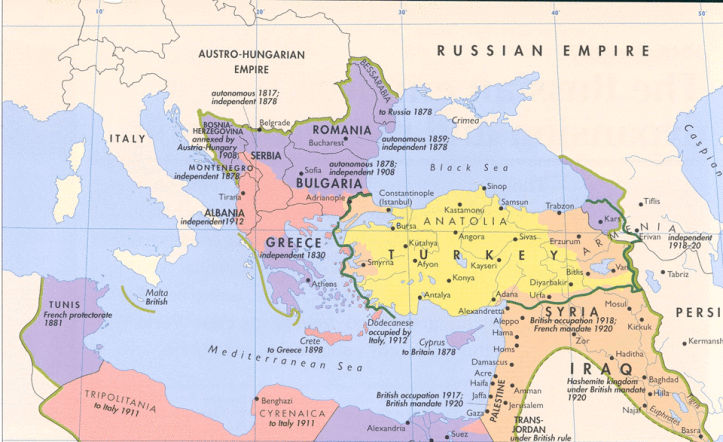
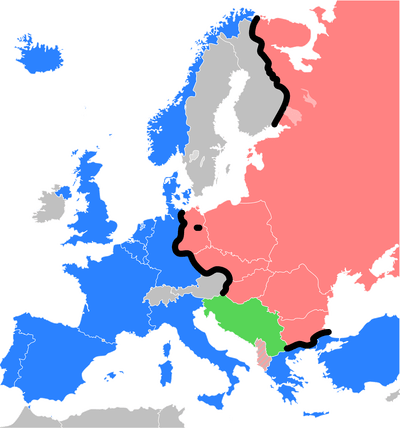
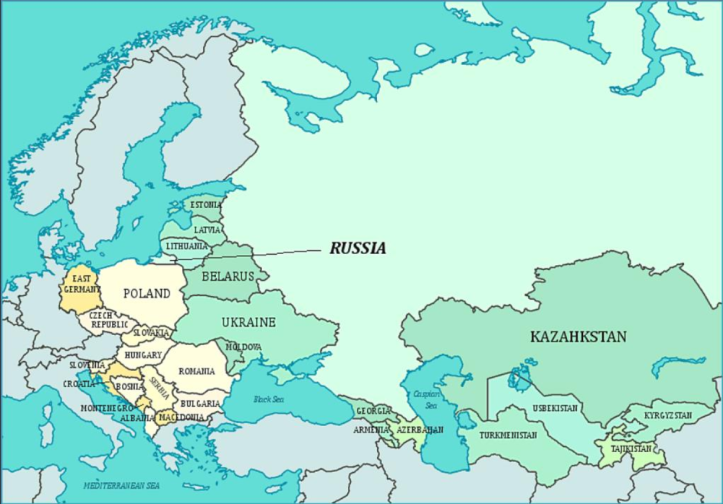










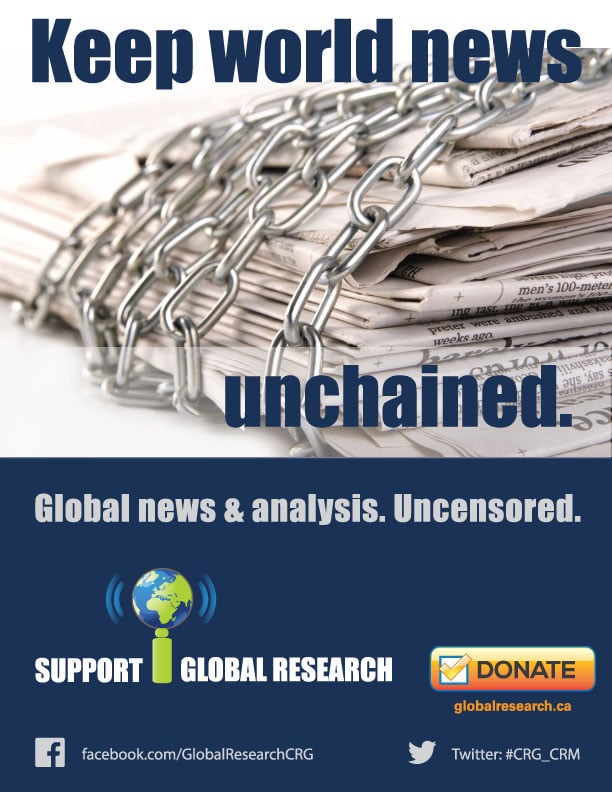 Can you
Can you 